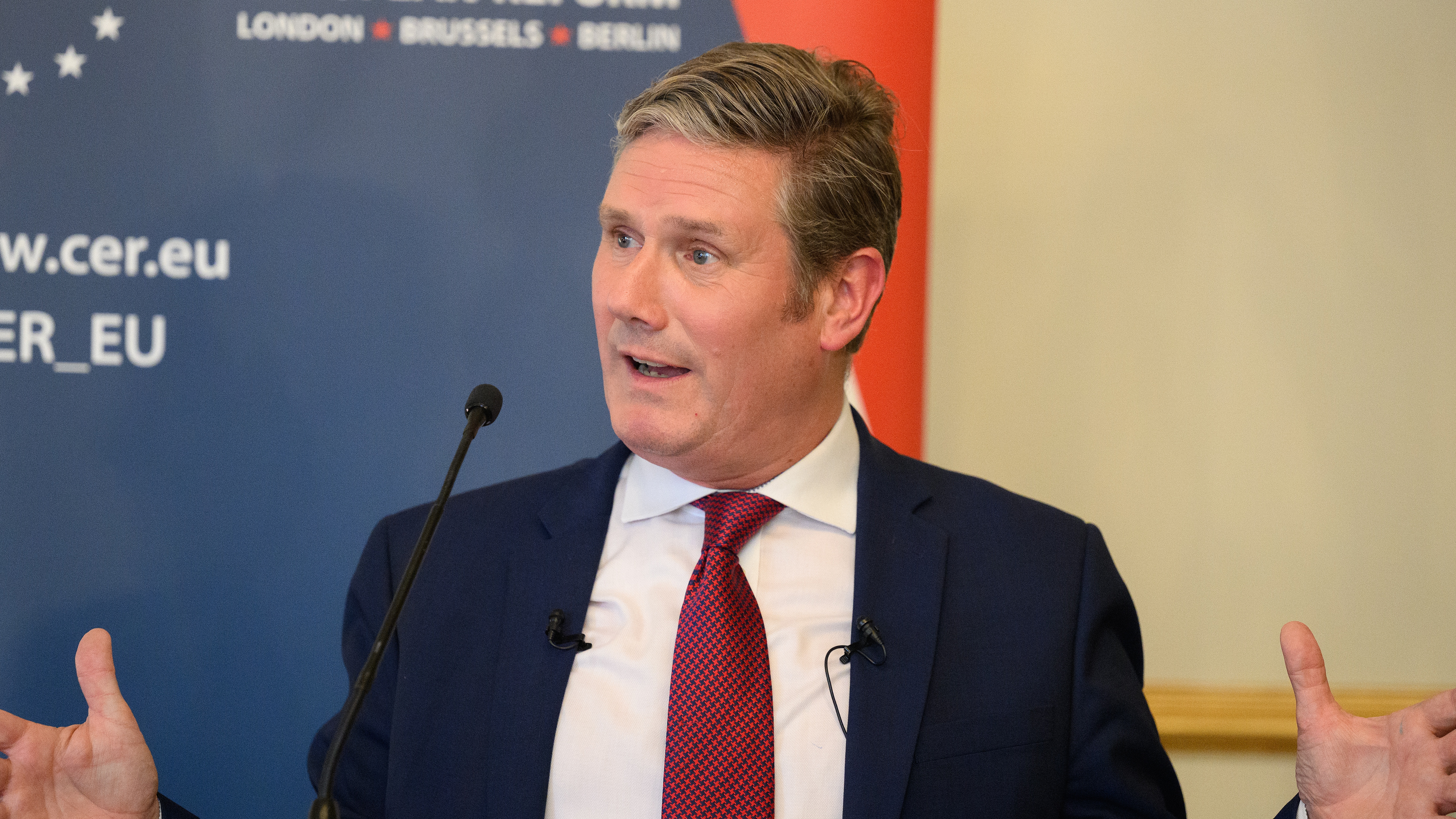Has Labour ended any chance of the UK rejoining the EU?
Opposition would not rejoin the customs union or single market if voted in, says Keir Starmer

A free daily email with the biggest news stories of the day – and the best features from TheWeek.com
You are now subscribed
Your newsletter sign-up was successful
Labour leader Keir Starmer has ruled out rejoining the EU as he laid out his party’s plan to tackle the issues caused by Brexit.
The Labour Party leader said that the UK “will not go back into the EU” under a Labour government, as he gave his first speech on the issue since the UK cut ties with the European Union.
With official forecasters continuing to say Brexit has damaged the UK’s economy, the Labour leader has “faced pressure within Labour” including from London Mayor Sadiq Khan, to “push for Britain to rejoin the bloc’s single market”, said the BBC.
The Week
Escape your echo chamber. Get the facts behind the news, plus analysis from multiple perspectives.

Sign up for The Week's Free Newsletters
From our morning news briefing to a weekly Good News Newsletter, get the best of The Week delivered directly to your inbox.
From our morning news briefing to a weekly Good News Newsletter, get the best of The Week delivered directly to your inbox.
But in his speech, given at the pro-EU think tank the Centre for European Reform, Starmer was clear he thought rejoining the single market or the customs union would “simply be a recipe for more division” and ensure Britain “remained stuck for another decade”.
In a play on Boris Johnson’s campaign slogan to “get Brexit done”, he said the Labour party’s plan will be “make Brexit work”.
Under the plan announced by Starmer, a Labour government would try to negotiate mutual recognition of professional qualifications, introduce a veterinary agreement, make it easier for artists to make short visits to the continent, align data adequacy rules and keep Britain in EU science programmes such as the flagship €95bn Horizon project.
Labour’s line in the sand
The Labour leader’s address marked an attempt to “regain control over an issue that has been a dividing line between the party’s MPs, members, and some of its voters”, said the BBC.
A free daily email with the biggest news stories of the day – and the best features from TheWeek.com
Speaking to Sky News’s Beth Rigby ahead of the announcement, he said he did not regret campaigning for a second Brexit referendum, despite some crediting it as a contributing factor to Labour losing the last election.
“We made our policy in the circumstances that were then the live circumstances, but we’ve left the EU now and the government has said we need to get Brexit done, but it hasn't really got a plan to do that,” Starmer said. “I want to make Brexit work.”
Indeed, “on the face of it”, given the Brexit referendum split of 52% to 48% in favour of Leave, one might imagine “there might be plenty of opportunity for a party like Labour to do well out of appealing to those who voted Remain”, said the BBC’s political editor Chris Mason.
However, the Remain vote was “concentrated in a small number of places, whereas the Leave vote was much more evenly distributed around the country”, he said. With a large majority of constituencies voting Leave, “Labour can’t make much progress by appealing just to Remain-voting areas”.
And while there is polling data to suggest that, in hindsight, about half of the UK population believes leaving the EU was the wrong decision, the split is still significant.
Labour at odds with Liberal Democrats
Starmer’s position puts his party at odds with the Liberal Democrats, who have stated their aim is to rejoin the single market. This could become significant amid accusations that the two parties are operating an unofficial pact to win by-elections and “could form a coalition in the event that Labour wins a general election, but without enough seats to form a majority”, reported The Telegraph.
If that situation were to arise, the Liberal Democrats could put “pressure on Labour to back down” on their Brexit stance, said the paper.
Critics in Westminster
Europhile politicians in Westminster have criticised Starmer for ruling out any return to the EU, with Ian Blackford, Westminster leader of the Scottish National Party, arguing that Starmer has “strengthened the case for independence by embracing the Tories’ hard Brexit”.
“By running scared of the Tories and mutating into a pale imitation of Boris Johnson, Starmer is offering no real change at all,” he said.
But outside of Westminster, “references to Brexit have largely disappeared from the political debate”, suggested Tim Congdon in The Critic. And so too has any meaningful platform for those who wish to rejoin the EU.
“What has happened to the heavyweight, decades-old and highly influential strand of UK public argument in favour of participation in European integration?” he asked. “There is a puzzle at the heart of British politics.”
The most likely overarching reason for this, contends Congdon, is a failure from prospective “Rejoiners” to “identify a politically viable path to resumed EU membership”.